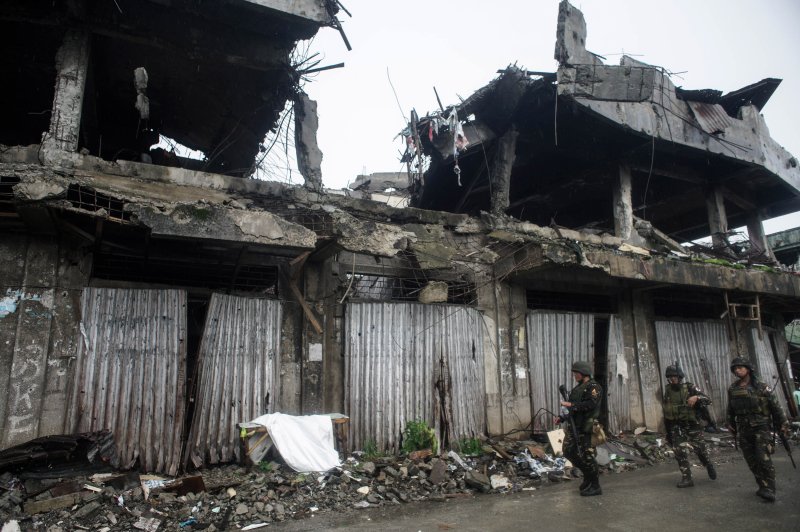Oct. 17 (UPI) -- Philippine President Rodrigo Duterte on Tuesday declared that Marawi City has been liberated from fighters of the Maute terrorist group.
Duterte, flanked by government troops, made the declaration five months after the Islamic militants stormed into the town.















